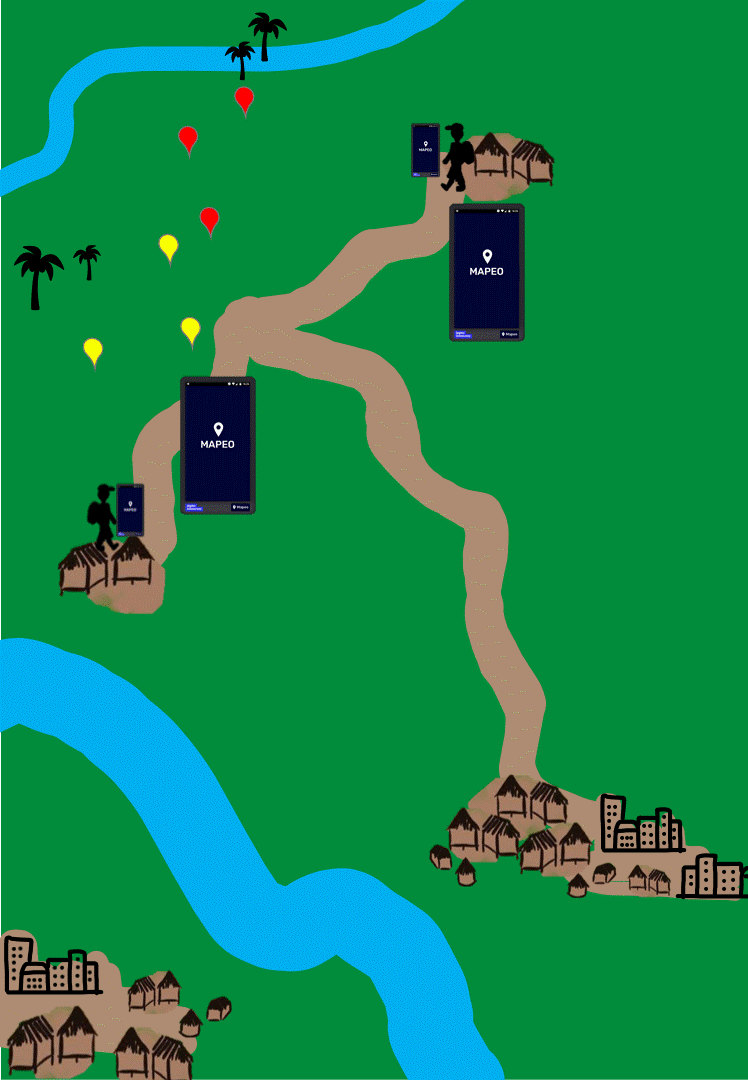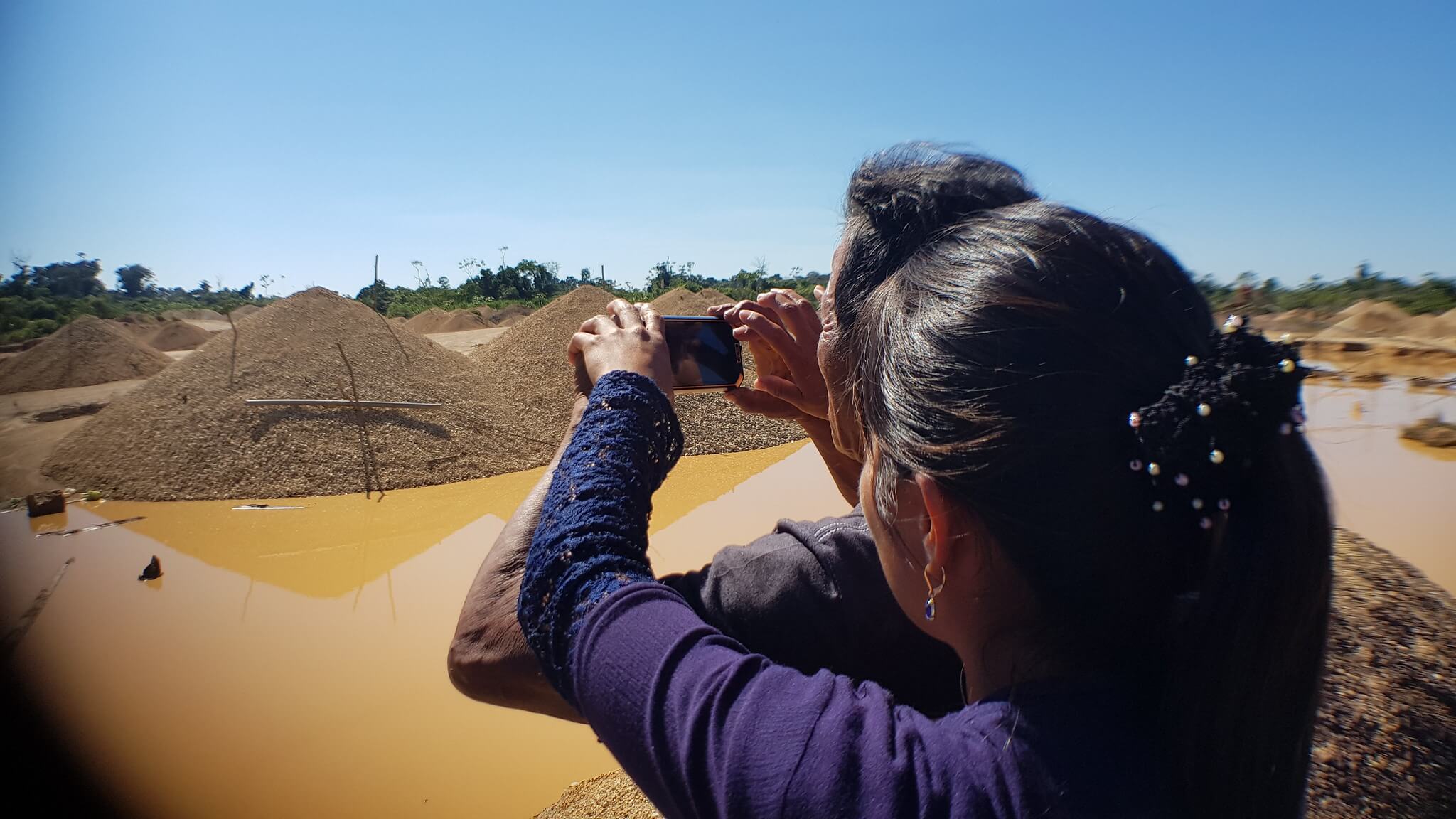Tech Matters is developing the Terraso software platform by working with technology creators – the designers of open source tools that can serve our partner’s objectives. This is the first entry in what will be a regular series of “Technology Spotlights” by the Terraso team. When we encounter tools that we consider to be well made and particularly helpful to landscape partnerships, we want to share them here, so that the Terraso community can see who we’re learning from and how we think technology may be best applied. Tech Matters is a technology nonprofit organization with deep expertise supporting the social good sector with open source software solutions. In this ongoing series, we share stories about our landscape co-design partners and how we are working together to find and improve tools for Terraso.
Technology should never be created in a vacuum. The principle that a tool’s users should shape its design is increasingly recognized as both an ethical and effective practice. Technology creators, however, often ignore certain groups of people when they create tools, such as those who are not already technically proficient, are non-English speakers, or lack access to broadband Internet or to powerful hardware.
The result is that people in these groups often must make do with technologies simply designed without them in mind. Survey tools built for a broadband-enabled office environment will break when used in places with a spotty data connection. Powerful analysis tools will crawl and crash on an old laptop. English-only mapping tools will frustrate a non-English speaker. When there is a mismatch between the function of the tool and the needs and skills of the user, she or he is fighting against a headwind to achieve her goals.

That’s why we’re excited to start off this Technology Spotlight series with Mapeo, a tool built from the ground up in partnership with some of the most historically marginalized groups: indigenous communities in South America. Digital Democracy, the nonprofit organization who co-created Mapeo alongside communities, specifically targets underserved communities. They followed a particular process to develop Mapeo that we think is worth highlighting.
Mapeo is a mobile and desktop-based monitoring application. Users of Mapeo can document landscape features through map drawing tools or by recording point-based data in the field. The tool supports a plethora of non-English languages, including the underserved dialects of indigenous communities in South America, Africa, and Indonesia. And, unlike many mapping tools, Mapeo utilizes a peer-to-peer database rather than a central server, meaning that users can exchange information with each other over a local wifi network without needing a connection back to the global Internet. The result is a tool designed for supporting communities to monitor and protect their lands, regardless of their access to telecommunications infrastructure.

It’s no coincidence that Mapeo is well-suited to the needs of indigenous groups. The software was originally developed in partnership with the Waorani people in Ecuador. In an article posted on the Earth Defenders Toolkit website, Digital Democracy describes the process by which the tool was created in partnership with members of the Harakbut, Yine, and Matsiguenka peoples in the Peruvian Amazon. Building technology specifically for indigenous groups without access to significant funds or resources is rare in the world of technology development, but doing so can result in software perfect for their needs.
Mapeo has been used to document and report dozens of instances of illegal mining or logging, and resulted in more than 30 responses by the co-management administration of their home Amarakaeri Communal Reserve. Use of Mapeo continues to spread to other groups in Africa and Asia who face similar challenges. As Digital Democracy further develops Mapeo, they apply these methods to other tools in their portfolio, like the story mapping tool Terrastories (expect another spotlight on this tool in the future!)
The phrase “nothing about us without us” was popularized in the 1980s and 90s by disability rights advocates who demanded a role in designing public spaces. The principle holds true in designing technology, as well – to be true instruments of service, software tools are best developed in partnership with the communities they are meant to serve. At Tech Matters, we implement this principle by working with co-design partners through the 1000 Landscapes for 1 Billion People Initiative to identify problems that need to be addressed and prototyping solutions. As a repository of open source tools for integrated landscape management, Terraso will highlight tools built specifically with and for the community of leaders seeking to promote livelihoods and sustainable ecosystems. As we build upon and integrate these tools, the experiences we create will be guided by these partners. Throughout this process, we will be guided by the design principles given us by our partners: build mobile-friendly, offline-compatible tools that work with their existing tool suite and are built to their own knowledge of technology.
“There is nothing wrong with making things people want,” says activist Laurie Penny, “The problem is that personhood and desire are constrained by capital; money affects whose wants appear to matter. The kids in Startup House may want a pizza delivery drone, but not in the same way low-income families want health care, or the elderly men lying in their own feces on Howard Street want a safe place to sleep.” Technology tends to be built to serve certain affluent groups, and its use by marginalized groups or people trying to do social good is often an afterthought. Flipping that practice on its head and building technology that centers these groups is a radical and important task. As we build Terraso, we’ll continue to highlight the creators who inspire us and who we think are examples of how to design a better world.

